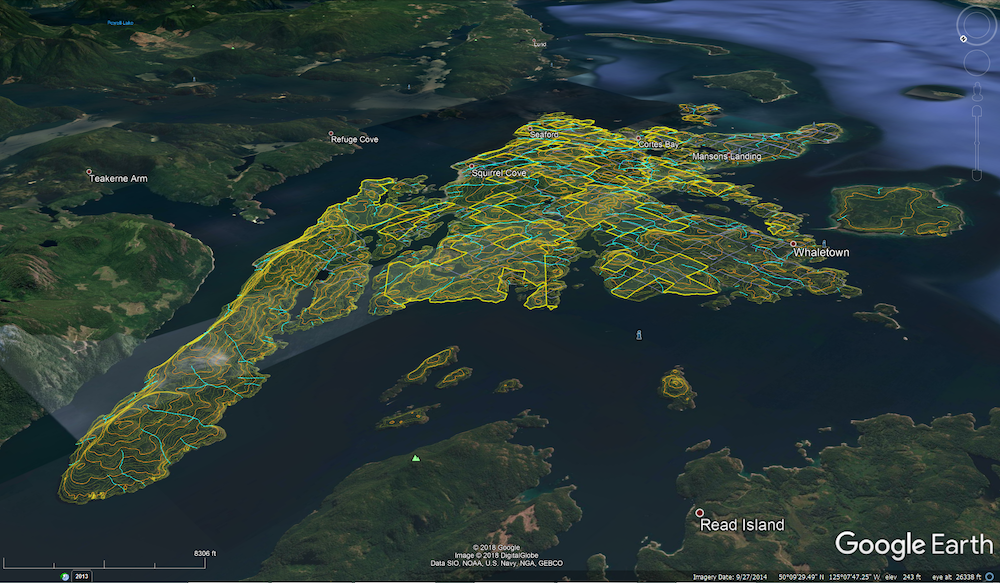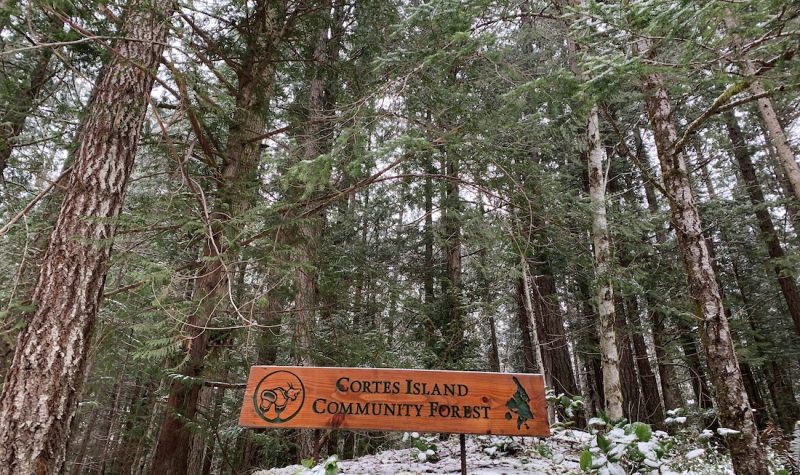A recent cut within the boundaries of the Cortes Community Forest invited on-island builders to make local wood a central part of their projects.
Forest Manager Mark Lombard said the current harvest is about 75 per cent completed and should wrap up in the next few months, with tree planting following in late March.
“Approximately 2,500 m3 of merchantable logs went out by barge and to local mills during the first round of hauling in November, and a firewood contractor has started processing the first of the firewood logs for sale. There will be a similar volume of merch and firewood going out in the next phase of hauling, which will be as soon as the logging is completed and weather & road conditions permit," he said.

The Cortes Island community forest is spread out across the island and encompasses approximately 35 per cent of the land base. Image courtesy of Cortes Community Forest Cooperative.
The Cortes Community Forest is overseen by the Cortes Forestry General Partnership (CFGP,) which is an equal partnership between the Cortes Community Forest Cooperative (CCFC) and the Klahoose First Nation. The two partners have been stewarding approximately 3,800 hectares of Crown land on Cortes Island that was designated as a community forest by the BC Minister of Forests, Lands and Natural Resource Operations in August 2013.
Maureen Williams, a director of the CCFC, and Henry Verschuur, owner of Bluejay Lake Farm, which has a sawmill, spoke about the many benefits of using local wood, which include:
- Supporting a partnership with Klahoose First Nation
- Supporting sustainable logging
- Creating local jobs
- High-quality wood, often at comparable or even lower prices than elsewhere
- Reducing fossil fuel usage since transportation is minimal
Listen to the full CKTZ News interview below:


